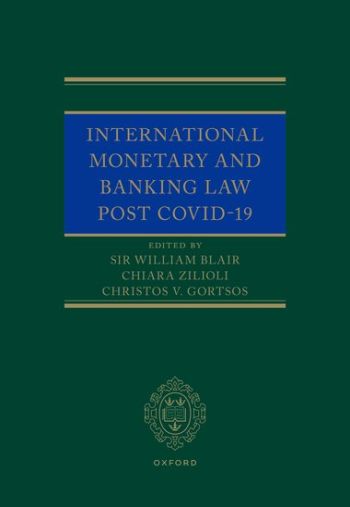
The COVID-19 pandemic and the global response to it has led to a major upheaval of the international banking sector. This book has an international reach and constitutes a blend between theory and international, EU, comparative and national law and practice, with the primary purpose to review the impact of the COVID-19 pandemic on the architecture and content of international monetary and banking law. Part I is focused on this aspect, considering the response of international financial fora and some major central banks all over the globe to the crisis.
A secondary purpose is considered in Parts II and III, offering a thorough overview, analysis, and discussion of two main issues which currently are of a significant importance for, and have heavy impact on, the law governing monetary policy and relations, banking regulation and payment systems law: (i) digitalisation of money and finance and (ii) sustainable finance.
Other selected legal aspects relating to central banking, as well as to banking regulation and supervision are finally discussed in Part IV, and in particular central banks' independence and accountability, unconventional monetary policies, comparative aspects of central banking and banking failures, legal aspects of monetary integration, and the legal nature of financial standards.
The individual Chapters are written, exclusively, by members of the Committee on International Monetary Law of the International Law Association (MOCOMILA) and reflect the global composition of this Committee of leading experts in international monetary and banking law from international financial institutions, central banks, the academia, the judiciary, and legal practice.